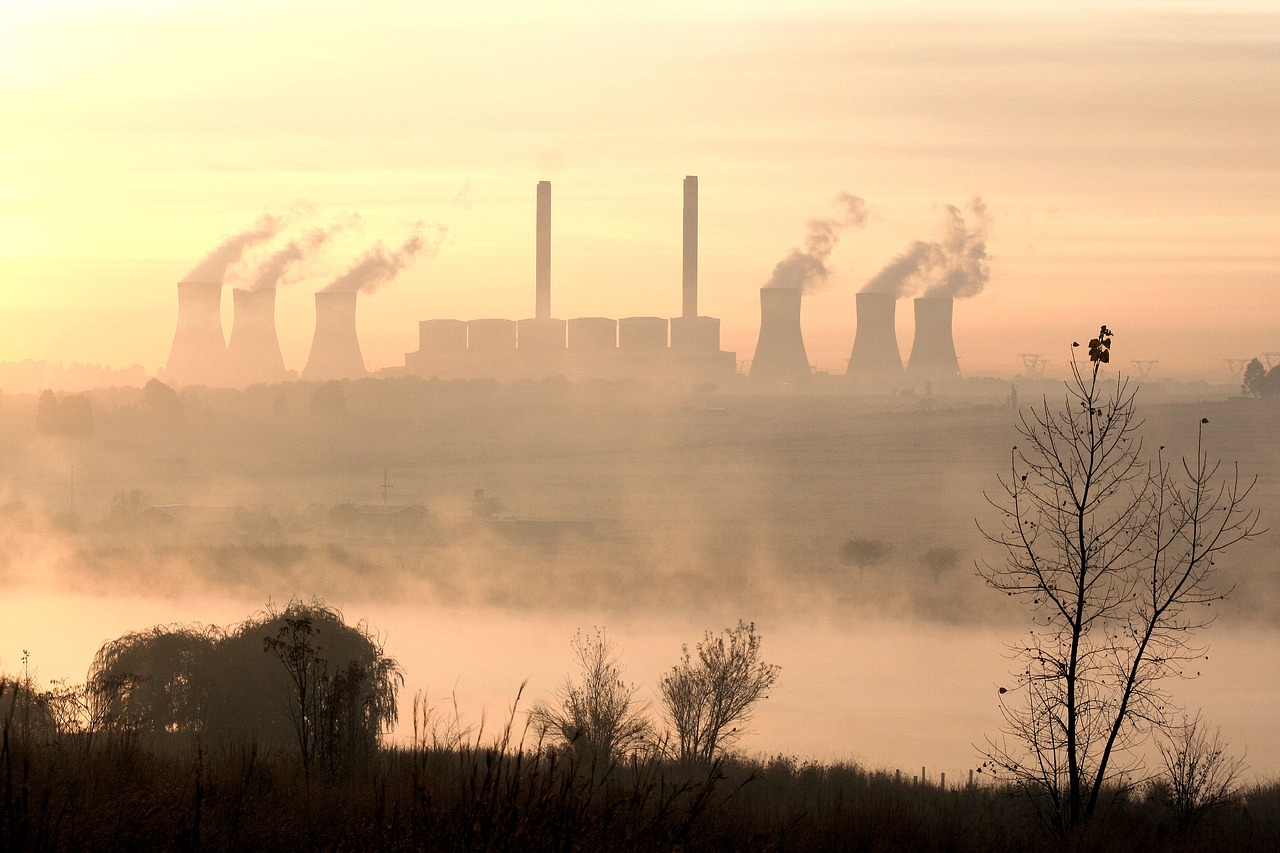Nearly a third of the directors of Africa’s biggest bank have close connections to the coal industry, casting doubt on their ability to ensure the organisation’s business is aligned with global climate goals.
A DeSmog investigation has found that 29 percent of board members of South Africa’s Standard Bank have current or former roles in companies involved in the coal supply chain that are included on the Global Coal Exit List (GCEL). Nearly a quarter (24 percent) of board members have current ties to the industry, making it the most coal-affiliated of any of the 39 banks analysed by DeSmog. Over 80 percent of directors had a past or current tie to polluting industries, either as a current or former adviser or employee.
Standard Bank agreed last week to set plans to reduce its fossil fuel financing in line with climate goals, following pressure from three of its shareholders and activists at the South African non-profit Just Share. However, campaigners say the research raises concerns about its board’s ability to follow the plans through.
Beau O’Sullivan, a campaigner for Bank on our Future, criticised directors’ ties to “the continent’s most aggressive polluters” and said shareholders should consider directors’ affiliations when voting at its annual general meeting (AGM) this Thursday.
“In the run up to the AGM on Thursday, shareholders should seriously be questioning whether these conflicts will hinder the board from following through on the climate action we need and whether the boardroom needs a total refresh,” he said.
A spokesperson for Standard Bank told DeSmog it followed a “rigorous process” when appointing directors, and “any potential conflicts of interests arising from their current or past affiliations to the energy sector” were “appropriately governed.”
“The group will set and publish science-based short-term, medium-term and long-term climate targets to support meeting the goals of the Paris Agreement and the goal of net-zero carbon by 2050,” he added, specifying that this would start with a focus on the oil and gas, thermal power, coal mining, renewables, and agriculture sectors.
‘Climate-conflicted‘
Standard Bank is involved in some of the largest and most controversial projects on the continent, including the $20 billion (£14 billion) Mozambique liquid natural gas (LNG) pipeline, recently suspended due to violence in the region, and the East African Crude Oil Pipeline (EACOP).
Earlier this month, it was reported that the bank had suspended its support for EACOP pending the results of an environmental impact study it had commissioned. This decision was announced following concerns from climate campaigners, and the refusal of several other major banks to support the project. However, the bank has not ruled out its future involvement.
Standard Bank’s spokesperson said the group was “committed to inclusive and sustainable human development” and saw climate change as a “material risk to Africa’s development.”
“As a founding signatory of the United Nations Principles for Responsible Banking, we understand that there is an important role that banks must play in ensuring a just transition to a lower-carbon economy,” he said.
The research found that nearly one in three (29 percent) of the bank’s directors have current or prior experience working at oil, gas or coal companies. And nearly one in five (18 percent) have current ties to the high-carbon companies listed in the Climate Action 100+ (CA100+) index as being among the world’s largest emitters.
“The cosy relationship between big banks and big polluters is what has got us into this mess. It seems there’s clearly a conflict of interest here when these same people will be voting on resolutions directly linked to climate change and the financing of fossil fuels.”
MOhamed Adow, Director of power shift africa
Coal is the world’s most polluting fossil fuel, which experts say must be rapidly phased out to meet climate goals. Yet two directors of the bank – Trix Kennealy and Nomgando Matyumza – are currently directors of energy and chemicals giant and CA100+ company Sasol, which has operations in coal as well as oil and gas. Matyumza is also the former CEO of African oil and gas pipeline developer, Transnet Pipelines, as well as a former employee at Eskom. Kennealy is also a past CFO at oil, gas and coal giant BHP, in addition to her role at Sasol. Sasol, Eskom and BHP are all included on the Global Coal Exit list.
Eskom and Sasol have been the focus of a court case brought against the government by environmental justice groups, regarding toxic air pollution emissions in South Africa. The litigation concluded on 18 May, with judgement being awaited. Together, the two companies emit over half of South Africa’s greenhouse gases and are major contributors to air pollution.
Board member Nonkululeko Nyembezi-Heita is a current director at mining giant Anglo American, having held roles at coal companies Exxaro Resources, Ichor Coal and Universal Coal, and at the world’s largest steelmaker, ArcelorMittal. She is also director at global steel trading company, MacSteel International. The steel industry, which is highly energy intensive, accounts for an estimated eight percent of global greenhouse gas emissions worldwide. Exxaro Resources, Anglo American, Ichor Coal and Universal Coal also feature on the Global Coal Exit List.
Mohamed Adow, Director of Power Shift Africa, a climate and energy think tank based in Nairobi, said it was “shocking” that nearly four out of every five directors on the board of Africa’s biggest bank had ties to companies “which are destroying our environment.”
“How can these people be putting the best interests of Africans first when they have been complicit in driving the climate crisis, which affects Africa more than any other continent.”
“The cosy relationship between big banks and big polluters is what has got us into this mess. It seems there’s clearly a conflict of interest here when these same people will be voting on resolutions directly linked to climate change and the financing of fossil fuels.”
“We need African businesses, and banks, leading the way as examples for others to follow on climate sustainability, instead of clapping through the agenda of fossil fuel companies.”
Kennealy pointed DeSmog to Standard Bank’s response. Matyumza and Nyembezi-Heita have both been approached for comment.
Disclaimer: Bank on our Future is co-ordinated by the Sunrise Project, which supported DeSmog’s global investigation into the climate-conflicted ties of directors at the world’s top banks. Mohamed Adow is a Director of DeSmog UK Ltd.
Subscribe to our newsletter
Stay up to date with DeSmog news and alerts







